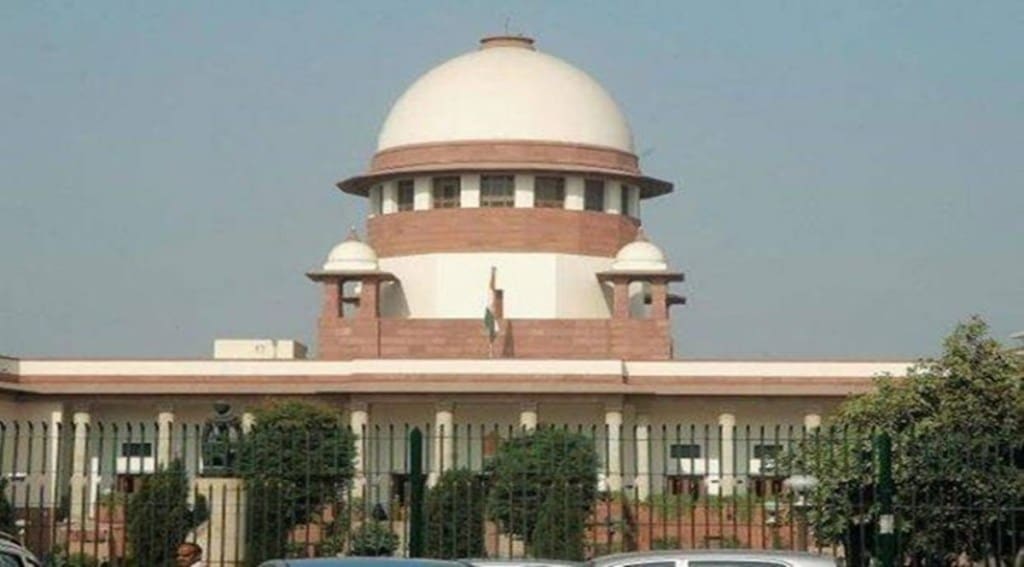Upholding the constitutional validity of the Foreign Contribution(Regulation) Amendment Act, 2020, which regulates how NGOs, companies and individuals receive and use foreign contributions, the Supreme Court on Friday said the citizens cannot have an absolute or even a vested right to receive such donations as free and uncontrolled flow of such contribution has the potential of impacting the sovereignty and integrity of the nation, besides undermining its constitutional morality.
“It is open to the State to have a regime which may completely prohibit receipt of foreign donation, as no right inheres in the citizen to receive foreign contribution (donation),” a Bench comprising justices AM Khanwilkar, Dinesh Maheshwari and CT Ravikumar said, adding that the statement of objects and reasons of the Amendment Act were testimony to the past experience of abuse of foreign contribution receipts and of spending on activities not connected with the purposes for which it was so permitted.
“…the inflow of foreign contribution had almost doubled between the years 2010 and 2019 and many of the registered associations had failed to comply with basic statutory formalities necessitating cancellation of certificates of registration of more than 19,000 registered organisations. This is a staggering (substantial) number indicative of gross violations by a large number of registered associations,” the judges said.
However, the Bench has watered down the condition that Aadhaar numbers should be given for FCRA clearance and maintained that applicants should be allowed to produce Indian passports when foreign nationals are allowed to do so.
Noting that there is no “paucity of donors” in India, the judges asked charitable organisations and NGOs to seek donations from within the country, as foreign donations have the ability to influence the policies of the country and hence should be reduced and avoided.
“Foreign contribution is qualitatively different from foreign investment. Receiving foreign donations cannot be an absolute or even a vested right. By its very expression, it is a reflection on the constitutional morality of the nation as a whole being incapable of looking after its own needs and problems,” the judgment stated, adding “philosophically, foreign contribution is akin to gratifying intoxicant replete with medicinal properties and may work like a nectar.”
“However, it serves as a medicine so long as it is consumed (utilised) moderately and discreetly, for serving the larger cause of humanity. Otherwise, this artifice has the capability of inflicting pain, suffering and turmoil as being caused by the toxic substance (potent tool) — across the nation,” Justice Khanwilkar wrote in the 132-page judgment for the Bench.
The judgment further said Parliament was competent to make such a law concerning activities related to foreign donations and more particularly about its acceptance in prescribed manner and utilisation for the purposes defined in the certificate/permission granted by the competent authority.
“…Accepting the argument of the registered associations would not only be undermining the legislative intent, but also disregarding the object sought to be achieved by the Principal Act…these provisions are only for effective regulatory measures concerning and limited to foreign contribution, in the larger public interests, public order, and more particularly for safeguarding the sovereignty and integrity of the country. Taking any other view would entail undermining the legislative intent and cannot be countenanced,” it added.
The verdict came on a batch of petitions challenging various provisions of the FCRA Act, which prohibited the transfer of foreign funds by recipient NGOs to other NGOs; requiring Aadhaar as identification for prior approval, and mandating the opening of an FCRA primary account exclusively in a branch of State Bank of India in New Delhi notified by the Centre (Section 17). Earlier, an NGO or an individual could utilise more than 50% of the contribution for meeting administrative expenses. This was brought down to 20% by the amendment.

